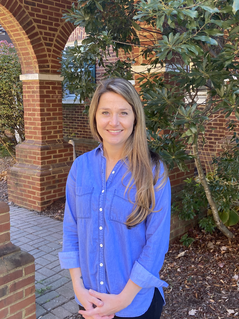| We are excited to announce the addition of Lauren Allen, Registered Dietitian to our team! Lauren works side-by-side with our behavioral health and psychiatry teams to offer collaborative treatment planning and ongoing integrated support for a wide range of goals. Whether you are interested in improving your nutrition in order to best support your behavioral health, working toward enhancing your athletic performance, or seeking integrated support for issues such as "picky eating," food phobias, or eating disorders.... we are here to help! |
Lauren has over 15 years experience providing medical nutrition therapy to adolescents (12 and up) and adults. She earned her undergraduate degree at James Madison University, completed her ADA-accredited Dietetic Internship at Pennsylvania State University, and earned her Master’s degree in Health Promotion Management at Marymount University. Her prior experience includes working at Remuda Ranch, a nationally renowned eating disorder clinic, and as a registered dietician with Marine Corps Community Services. Lauren is also a Certified Specialist in Sports Dietetics.
Lauren provides a variety of services, including:
We welcome anyone who is interested to call us to schedule a free consultation! For more information see our Dietitian Services page.
Lauren provides a variety of services, including:
- Personalized nutrition counseling
- Sports and fitness nutrition
- Collaborative eating disorder treatment
- Developing healthy relationships with food
- Pre and post-natal nutrition counseling
- Autism spectrum and food phobias
- Nutrient-based support for mental health
- General nutrition and wellness services
We welcome anyone who is interested to call us to schedule a free consultation! For more information see our Dietitian Services page.


 RSS Feed
RSS Feed
